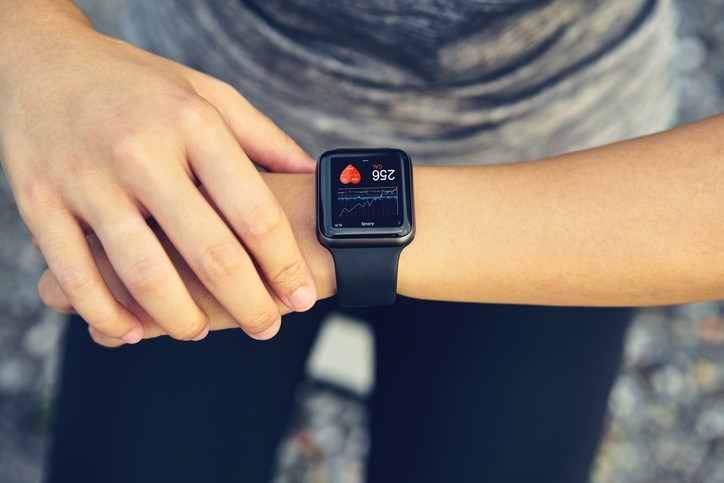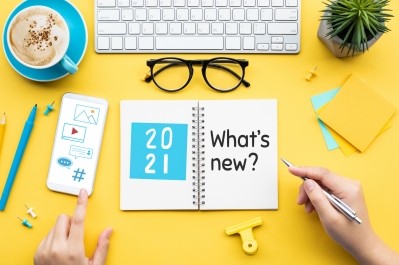Personalised apps: When do health tools become daily obsessions?

“Back in 2015, Women’s Health recommended its readers stop counting calories because researchers found the effect that has on anxiety actually caused people to gain weight. Counting calories is only one element of nutrition data tracking. Now we are able to capture many elements of health and we keep adding more all the time and the view is ‘the more data, the better’. There’s a shiny object syndrome happening in that respect and I think it’s quite dangerous.”
These are the words of Joe Welstead, founder of the nootropic supplements startup Motion Nutrition, who started to think about this issue while tracking how the botanical sleep aid supplement in his range helped his sleep.
He started to realise that normal daily changes in health stats can provide a skewed perceptions of health and wellness and could even impact a consumer's focus on long-term goals.
The entrepreneur argues there are clear occasions when health data trackers are a tool for “hugely positive change”, for example, when obtaining data on how a specific food/product/exercise is impacting a specific element of health over a certain period of time or for early detection of diseases but he argues these are not the core ways that companies and consumers currently want to use their data.
“People buy these products to improve themselves on a continuous daily basis and it's this continuous data tracking that worries me.
“The data reporting on these apps is very simplistic. On my workout tracking device, if I have a big workout one day, it will tell me I should have a rest for the following two days because I’m not in optimum condition for exercise. But that’s counter-productive, especially if I’m looking to lose weight, or push my exercise threshold, or improve my speed of recovery.
“Or say I eat late dinners at the weekend, plus I sleep later in the morning, the app will tell me it was beneficial to eat late at night. It wasn’t the late meals that benefited my stats at all, but the late sleep-ins and the fact I wasn't working.”
Of course, much of this comes down to consumers understanding how to read stats and advice with their own knowledge and sense of reality but, as with social media apps, Welstead argues its those behind the technology who should ensure their services offer real value and do not offer more data simply for the sake of more data.
He points out many workout focused apps often provide a social or a ‘gamified’ element which he believes can take them over the line from helpful tool, to daily addiction.
“The social aspect and the gamification can make them addictive to some degree and when something is addictive it is no longer a helpful tool, but a controlling device.
“There are many ways it can control you. Think about if you were planning to spend the weekend with a group of friends or family and you knew you would be celebrating a special occasions. You knew there would be lots of eating and drinking and staying up late.
"If you are driven by your health stats and you know that all those things will have a negative impact on your stats, this could potentially cause you a lot of anxiety, or worse, it could cause you to avoid the event altogether. Either way, having that level of constant data feedback is not helpful for our mental health in that situation.
“We all know what we need to do to take care of our mental health, whether it be going for a quick run in the countryside or having a coffee with a friend, but if we are continuously given incentives to keep data ‘in the green’ then we might ignore our basic instincts for the sake of numbers."
His company is currently encouraging consumers of the Unplug supplement to keep track of their sleep on a monthly basis and he says this level of data collection is going to be beneficial to the company and his consumers.
“Tracking this level of data will be fantastic for discovering how the product influences REM sleep patterns over the long-term. This is also a great tool to allow consumers to see how their own lifestyle changes impact their sleep over time. For example, if they give up caffeine and they want to see how that impact their sleep.
“When I was tracking my sleep every day there was one particular morning I woke up feeling quite groggy and like I had had a really bad night’s sleep but when I looked at the app it told me I had slept well and this actually made me feel better! Well, the problem is, it can work both ways.
"And whether it's giving you a positive or a negative reading, if you have an app affecting how you feel, that can't be good for our mental health."
How to provide value
Welstead argues that health tracking devices shoot themselves in the foot when they provide continuous and detailed ‘micro-data’.
“It’s providing people with too much control, and too much data, all of the time. That’s when it becomes dominating and then it starts to become controlling.”
The other issue with this ‘micro-data’, Welstead believes, is that it causes the consumer to constantly re-adjust, rather than sticking to something for two or three months, turning it into a habit, and getting to see the long-term impact.
Welstead advises those in the personalised nutrition space to carefully consider the right level of data needed to provide real value to the consumer.
In five years’ time, Welstead argues that personalised nutrition will no longer be a novelty and it’s those brands offering real value, that will prosper.
He suggests companies think about what their customer needs, not just what they think they want.
“At some point, personalisation will be the norm and at that point I worry that it will be the brands that offer the best price point and the most sleek website that win. This is not a good direction for the industry.
“Even if you have the ability to provide the consumer with a lot of data, if you are really trying to build a brand that goes beyond trends then the service has to be meaningful and it has to bring something positive to consumers’ lives.“







